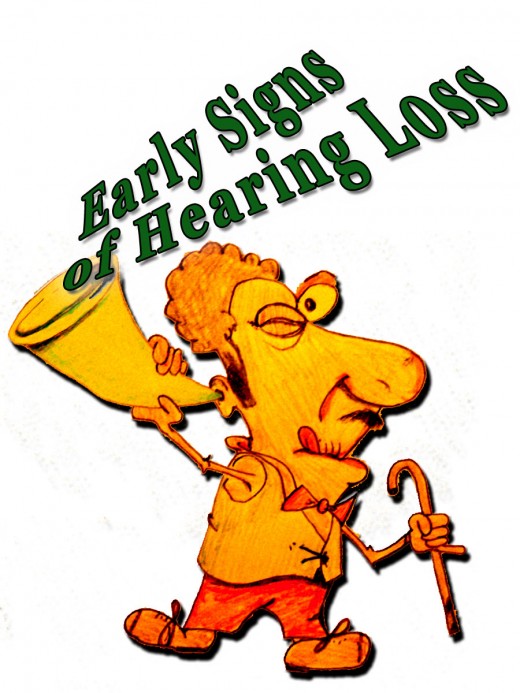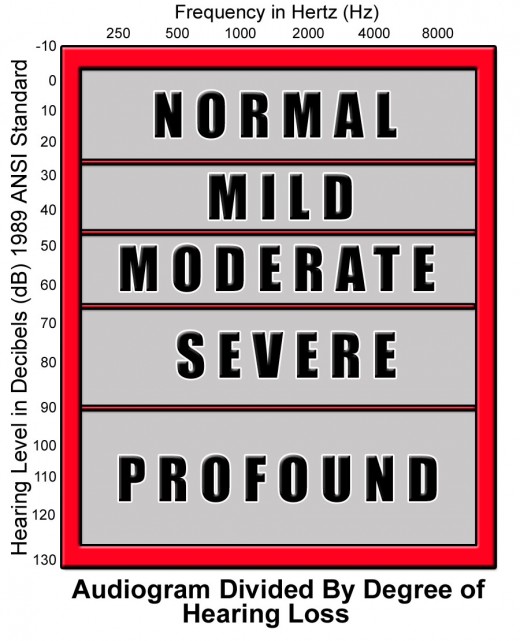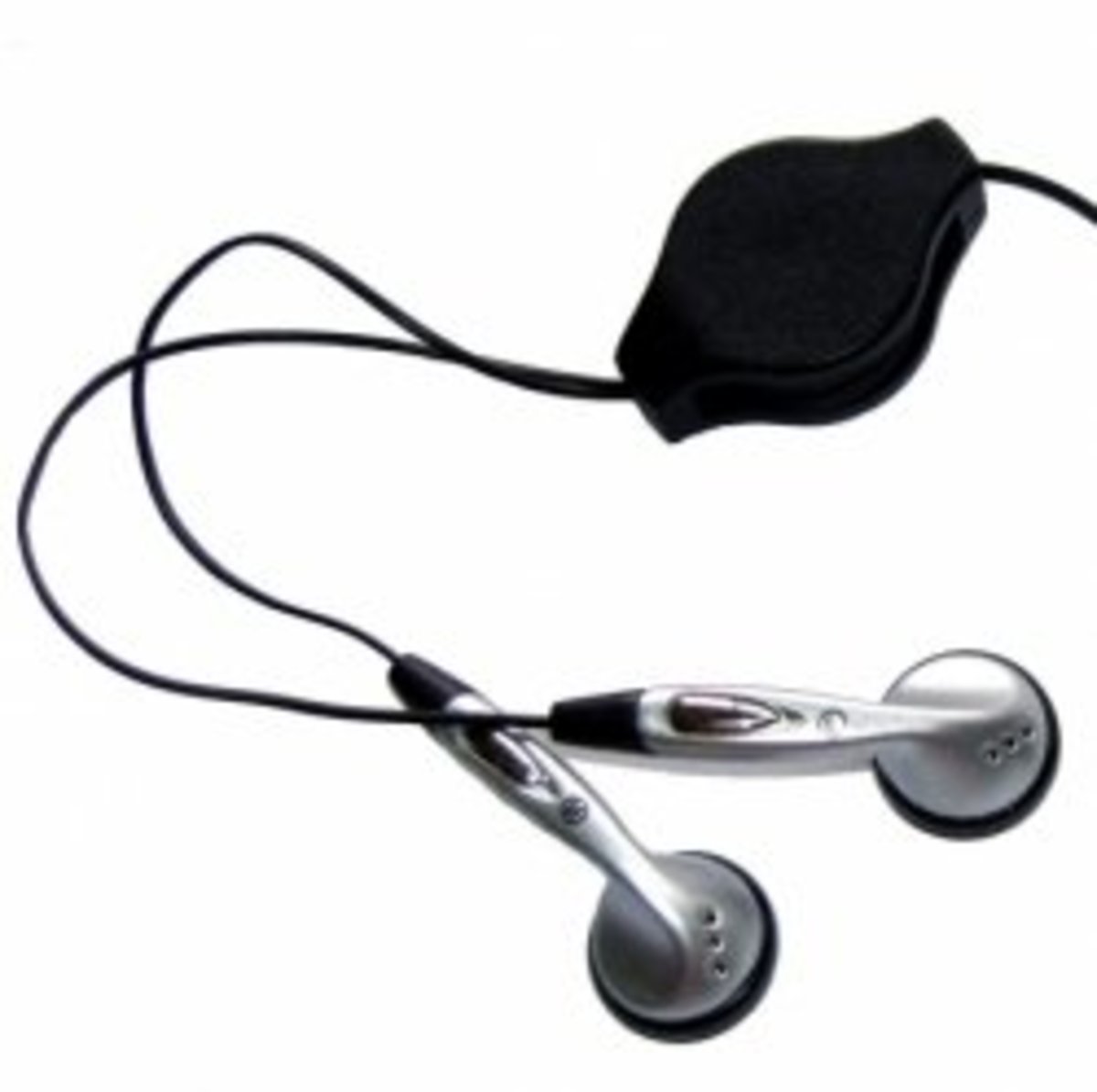Hearing Loss: Early Signs and Causes
What Are the Early Signs of Hearing Loss
Once in a while everyone has difficulty hearing due to outside influences. But, if you get the feeling that you may be losing your hearing or having some level of hearing loss, you may want to check out these early warning signs of hearing loss:

What are Early Warning Signs that You May be Losing Your Hearing
- You ask people to repeat what they have said
- You respond incorrectly to what people are saying
- You can hear what is being said, but cannot understand
- You have a hard time understanding at restaurants, in the car, or other loud places
- You can't understand your children, or grandchildren
- You can't hear very successfully at the theater or at the movie
- You find you hear better in one ear than the other when using the phone
- You can't understand when in group settings
- You have ringing in your ears, or experience pain or dizziness
- You have the TV on louder than other people
- You need to see a person's lips to understand the conversation
- You turn your head to one side or the other to hear what is being said
Why Didn't I notice My Hearing Loss Sooner
Why is Denial Such a Big Issue with Early Hearing Loss
Usually hearing loss happens over a period of time, which causes people to delay getting help for the problem on an average of six years. Sometimes people just simply don't notice the early signs of hearing loss they have been experiencing. Most of the time however, and unfortunately, people find it difficult to admit they have a problem, or just avoid it all together. If you are in denial, it may be because you think hearing loss is due to aging, or has the stigma of being a disability attached.
In many cases, the people being effected by a hearing loss are in fact, family and friends, and not the person with the actual problem. Hearing loss can be more apparent to those you live and socialize with, than it is to you. Because of this, the individual who is losing his/her hearing may tend to blame those around them. This can cause stressful conditions for all concerned.
Information Resources on Hearing Loss
Why is it so Easy to Ignore Early Hearing Loss Symptoms
The Pain of No-Pain Hearing Loss
Since most hearing loss is absent of any physical pain, people who are hard of hearing will actually delay treating it. This is especially true when these same individuals are contending with physically painful conditions, such as heart or chronic joint problems. Just because hearing loss can be painless on a physical level, doesn't mean it is not painful in other ways.
Hearing Loss Can be Emotionally Painful
Hearing loss can be extremely painful on an emotional level. This emotional pain can show up as having feelings of decreased social skills, intentional isolation, depression, and plain old embarrassment. It can also bring emotional pain, fear, and frustration to family members who find successful communications with you, to be quickly slipping away.
Admitting You Have a Hearing Loss
Getting Help with a Hearing Loss is a Priority
When the frustration of straining, tuning out and getting tired builds up because you can't hear well, you may need to face the facts, and admit you have a hearing loss. It is time to see a hearing loss specialist to help determine what type of hearing problem you are encountering. Some hearing problems can be fixed through medical or surgical intervention. But most hearing losses can be helped to some degree, by wearing a hearing aid.
Communication Keeps You Healthy
Keeping in touch with family and friends is a vital measure in staying happy, healthy, and engaged in life. Good communication is a major part of maintaining this connection. This is most true for those who are older and aging and experiencing a hearing loss along the way. This is why getting treatment for your hearing loss must become your highest priority in life. Don't let your family and friends slip away because your hearing loss is getting in their way.
What You Think Really Does Matter!
Do you or someone in your family have a hearing loss?
What is Hearing Loss
Hearing Loss is an Invisible Disability
No wheelchairs, red-tipped expandable canes, and no crutches or braces to tell an outsider that you have a hearing loss. But, did you know that hearing loss is the most prevalent, least recognized, and least understood physical disability? And get this:
"One out of every ten people have a hearing loss."
"At age sixty-five, one in every three people has some degree of hearing loss, and the incidence is even higher among those of more advanced years.*
*"Hearing Loss and Older Adults," National Institute on Deafness and other Communication Disorders [cited Aug 4, 2002]
Degrees of Hearing Loss: Loudness and Clarity
Hearing Loss as Measured in Degrees of Loudness
LOUDNESS - A person who has a difficult time with loudness can generally understand speech if it is created loud enough. Sadly, no matter how loud some sounds are, they may never be heard at all, and here is why:
As with sight, in hearing losses we find varying degrees. These can range from mild to profound. To what degree of hearing loss someone is experiencing is referred to in decibels (dB), which is a measurement for how loud something is.
Degree of Hearing Loss

Measuring Decibel Range in Hearing
Mild Hearing Loss: A mild hearing range (26-45 dB), may cause you to have difficulty hearing and understanding someone who has a soft speaking voice, conversations in noisy places, or when a person is talking from a distance.
Moderate Hearing Loss: A moderate hearing range (46-65 dB), means you may have difficulty understanding conversations in a quiet background situation as well.
Severe Hearing Loss: A severe hearing range (66-90 dB), you might experience difficulty understanding conversations no matter where, or how close you are.
Profound Hearing Loss: A profound hearing loss (anything greater than 90 dB), might prevent you from hearing even loud speech or sounds within your immediate environment.
A Note About Frequency and Hearing Loss:
Frequency: The pitch, or frequency, is vital to understanding speech. This is measured in hertz (Hz). A person with hearing loss may find it hard to hear consonants like th, s, and f, while hearing just fine at low-frequencies sounds like oo, m, and ah. This is because the hearing loss older people encounter is generally in the higher frequencies.
Hearing Loss as Measured in Clarity
Decibels are not the only way hearing is measured, and is only one half of the problem; sound can also seem distorted. What this means is that, even though you can hear the sound, you are unable to understand it.
CLARITY - An individual who has a clarity problem hears sounds as unclear or can't understand the sounds even when amplified. The majority of people who have hearing problems find that loudness and clarity both, are at issue.
Going Deaf
- Nashville's Deaf & Hard of Hearing | Services & Assistances
Services for the Deaf in Nashville. Deaf and Hard of Hearing Services | Assistance | Church | Translation Services in Nashville. - How Is Your Child Deaf? What If He or She has Glue Ear? A Best Guide
Think your child is deaf? How would you know? Perhaps he or she has glue ear? This article is the best guide to explaining what, how and why your child shows signs of temporary deafness and what can be done about it.





